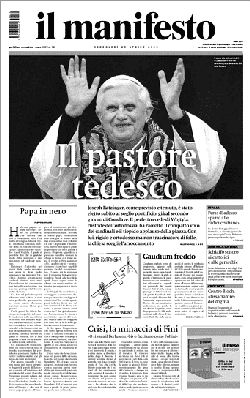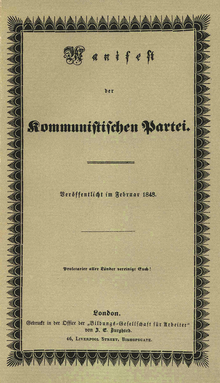
A creed, also known as a confession of faith, a symbol, or a statement of faith, is a statement of the shared beliefs of a community which summarize its core tenets.

Muslims are people who adhere to Islam, a monotheistic religion belonging to the Abrahamic tradition. They consider the Quran, the foundational religious text of Islam, to be the verbatim word of the God of Abraham as it was revealed to Muhammad, the main Islamic prophet. Alongside the Quran, Muslims also believe in previous revelations, such as the Tawrat (Torah), the Zabur (Psalms), and the Injeel (Gospel). These earlier revelations are associated with Judaism and Christianity, which are regarded by Muslims as earlier versions of Islam. The majority of Muslims also follow the teachings and practices attributed to Muhammad (sunnah) as recorded in traditional accounts (hadith).

The Nicene Creed, also called the Creed of Constantinople, is the defining statement of belief of Nicene Christianity and in those Christian denominations that adhere to it. The original Nicene Creed was first adopted at the First Council of Nicaea in 325. According to a popular view forwarded by the Council of Chalcedon of 451, the Creed was amended in 381 by the First Council of Constantinople as "consonant to the holy and great Synod of Nice." However, there are some who comment on these ancient Councils who say "there is a failure of evidence" for this position since no one between the years of 381–451 thought of it in this light. Nonetheless, the amended form is presently referred to as the Nicene Creed or the Niceno-Constantinopolitan Creed.

Secular humanism is a philosophy, belief system, or life stance that embraces human reason, logic, secular ethics, and philosophical naturalism, while specifically rejecting religious dogma, supernaturalism, and superstition as the basis of morality and decision-making.

The Declaration of Independence, formally titled The unanimous Declaration of the thirteen united States of America in both the engrossed version and the original printing, is the founding document of the United States. On July 4, 1776, it was adopted unanimously by the 56 delegates to the Second Continental Congress, who convened at the Pennsylvania State House, later renamed Independence Hall, in the colonial era capital of Philadelphia.
An act of Congress is a statute enacted by the United States Congress. Acts may apply only to individual entities, or to the general public. For a bill to become an act, the text must pass through both houses with a majority, then be either signed into law by the president of the United States, be left unsigned for ten days while Congress remains in session, or, if vetoed by the president, receive a congressional override from 2⁄3 of both houses.

A novella is a narrative prose fiction whose length is shorter than most novels, but longer than most novelettes and short stories. The English word novella derives from the Italian novella meaning a short story related to true facts.

Wiktionary is a multilingual, web-based project to create a free content dictionary of terms in all natural languages and in a number of artificial languages. These entries may contain definitions, images for illustration, pronunciations, etymologies, inflections, usage examples, quotations, related terms, and translations of terms into other languages, among other features. It is collaboratively edited via a wiki. Its name is a portmanteau of the words wiki and dictionary. It is available in 194 languages and in Simple English. Like its sister project Wikipedia, Wiktionary is run by the Wikimedia Foundation, and is written collaboratively by volunteers, dubbed "Wiktionarians". Its wiki software, MediaWiki, allows almost anyone with access to the website to create and edit entries.
Webster's Dictionary is any of the US English language dictionaries edited in the early 19th century by Noah Webster (1758–1843), a US lexicographer, as well as numerous related or unrelated dictionaries that have adopted the Webster's name in his honor. "Webster's" has since become a genericized trademark in the United States for US English dictionaries, and is widely used in dictionary titles.

Liberal International is a worldwide organization of liberal political parties. The political international was founded in Oxford in 1947 and has become the pre-eminent network for liberal parties aiming to strengthen liberalism around the world. Its headquarters are at 1 Whitehall Place, London, SW1A 2HD, within the National Liberal Club. The Oxford Manifesto describes the basic political principles of the Liberal International, which is currently made up of 111 parties and organizations.

Futurism was an artistic and social movement that originated in Italy, and to a lesser extent in other countries, in the early 20th century. It emphasized dynamism, speed, technology, youth, violence, and objects such as the car, the airplane, and the industrial city. Its key figures included Italian artists Filippo Tommaso Marinetti, Umberto Boccioni, Carlo Carrà, Fortunato Depero, Gino Severini, Giacomo Balla, and Luigi Russolo. Italian Futurism glorified modernity and, according to its doctrine, "aimed to liberate Italy from the weight of its past." Important Futurist works included Marinetti's 1909 Manifesto of Futurism, Boccioni's 1913 sculpture Unique Forms of Continuity in Space, Balla's 1913–1914 painting Abstract Speed + Sound, and Russolo's The Art of Noises (1913).

Giorgio Agamben is an Italian philosopher best known for his work investigating the concepts of the state of exception, form-of-life and homo sacer. The concept of biopolitics informs many of his writings.

The Manifesto of Futurism is a manifesto written by the Italian poet Filippo Tommaso Marinetti, published in 1909. In it, Marinetti expresses an artistic philosophy called Futurism, which rejected the past and celebrated speed, machinery, violence, youth, and industry. The manifesto also advocated for the modernization and cultural rejuvenation of Italy.
There is no consensus, scholarly or legal, on the definition of terrorism.

Humanist Manifesto is the title of three manifestos laying out a humanist worldview. They are the original A Humanist Manifesto, the Humanist Manifesto II (1973), and Humanism and Its Aspirations: Humanist Manifesto III (2003). The original manifesto originally arose from religious humanism, though secular humanists also signed.
Nonpartisanship, also known as nonpartisanism, is a lack of affiliation with, and a lack of bias towards, a political party.

il manifesto is an Italian daily newspaper published in Rome, Italy. While calling itself "communist" and broadly left-wing, it is not connected to any political party.

The adjective free in English is commonly used in one of two meanings: "at no monetary cost" (gratis) or "with little or no restriction" (libre). This ambiguity can cause issues where the distinction is important, as it often is in dealing with laws concerning the use of information, such as copyright and patents.

An art manifesto is a public declaration of the intentions, motives, or views of an artist or artistic movement. Manifestos are a standard feature of the various movements in the modernist avant-garde and are still written today. Art manifestos are sometimes in their rhetoric intended for shock value, to achieve a revolutionary effect. They often address wider issues, such as the political system. Typical themes are the need for revolution, freedom and the implied or overtly stated superiority of the writers over the status quo. The manifesto gives a means of expressing, publicising and recording ideas for the artist or art group—even if only one or two people write the words, it is mostly still attributed to the group name.
The term Roman Catholic is sometimes used to differentiate the Catholic Church and its members in full communion with the pope in Rome from other Christians who identify as "Catholic". It is also sometimes used to differentiate adherents to the Latin Church and its use of the Roman Rite from Catholics of the Eastern Catholic Churches. It is not the official name preferred by the Holy See or bishops in full communion with the pope as a designation for their faith or institution.












